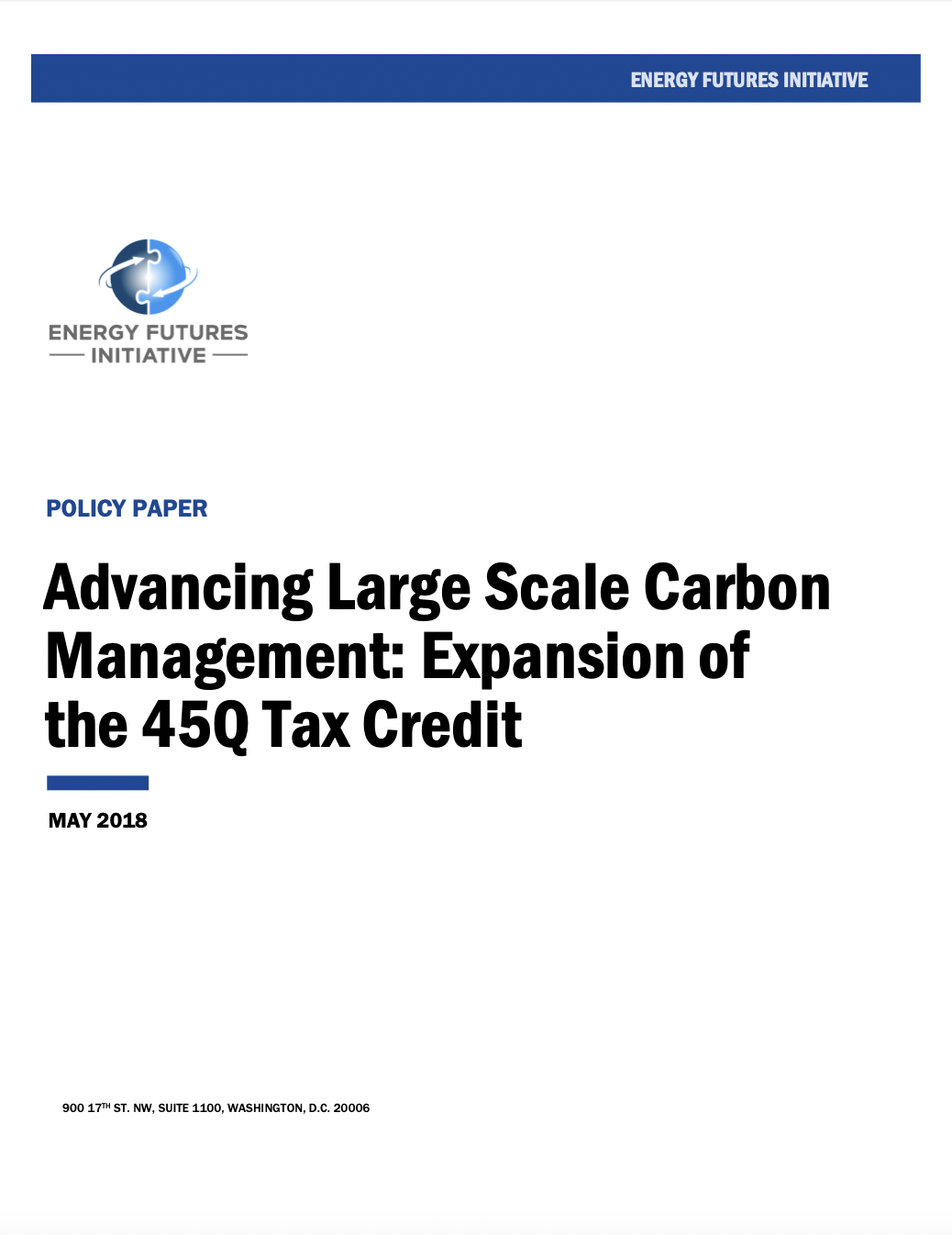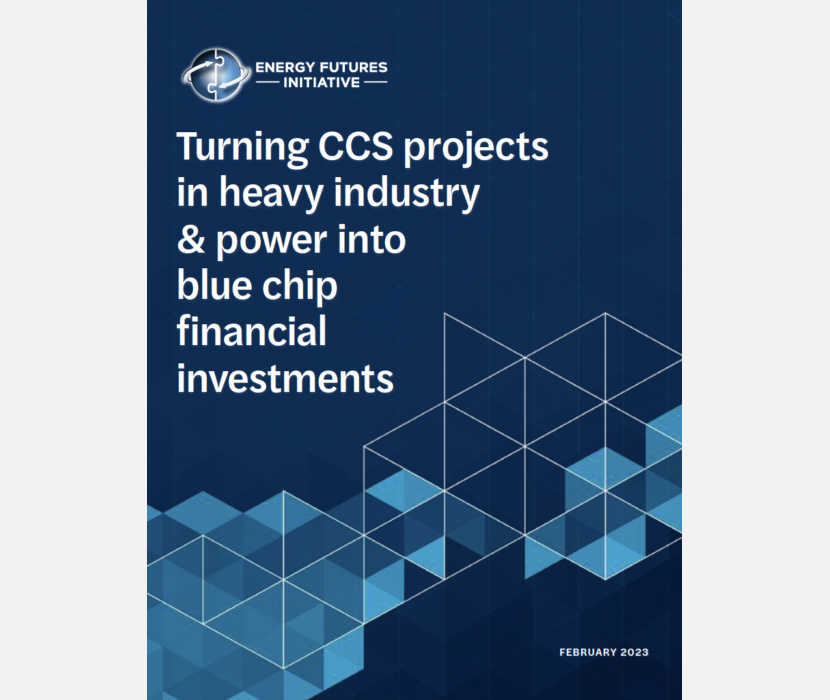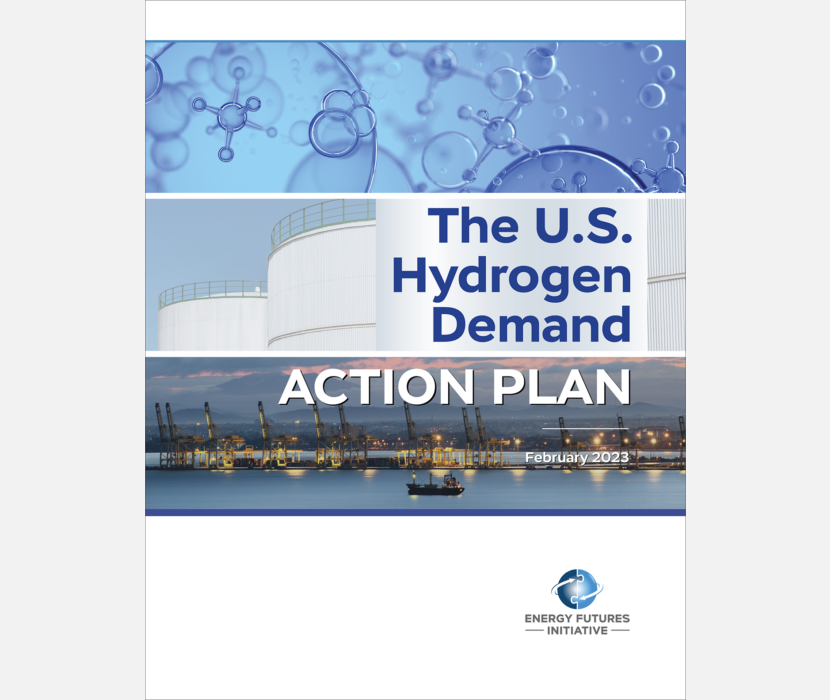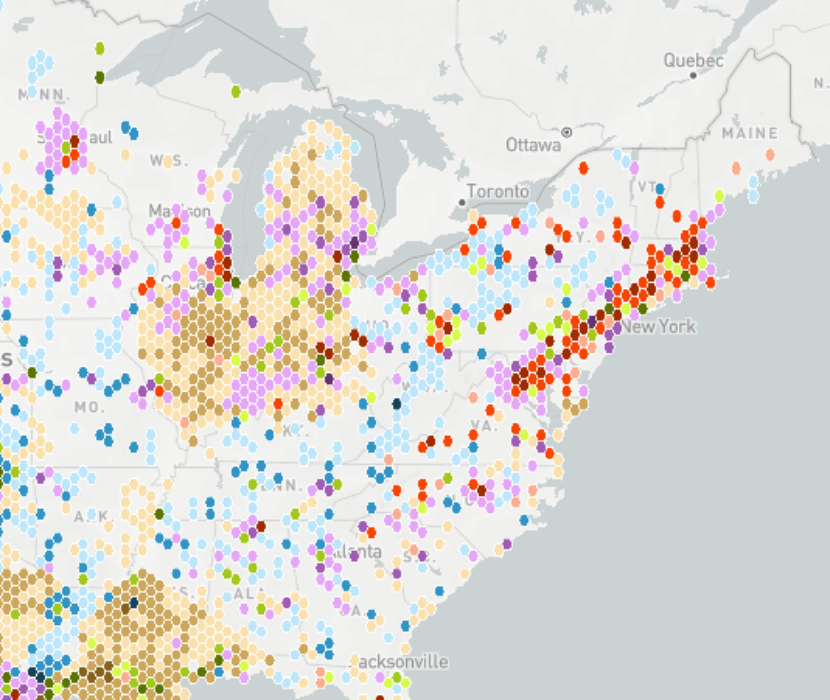Advancing Large Scale Carbon Management: Expansion of the 45Q Tax Credit (May 2018) is a white paper analysis published by the Energy Futures Initiative that analyzes the potential positive impact of the expanded federal tax incentives for carbon capture utilization and storage (CCUS), as well as the additional implementation challenges facing CCUS project developers and policymakers.
The Bipartisan Budget Act passed by Congress on February 8, 2018, included expanded provisions for CCUS. These provisions, based on Senate Bill S. 1535 (FUTURE Act) and its companion legislation in the House, expand and reform the Section 45Q tax credits originally enacted in 2008. They include an increase in the credit value for qualifying projects, a longer time horizon for developers to claim the credit, a more expansive definition of qualifying utilization projects beyond enhanced oil recovery, and eligibility of direct air capture. Under the rule, industrial manufacturers that capture carbon from their operations can earn $50 per metric ton of CO2 stored permanently or $35 if the CO2 is used, such as for enhanced oil recovery.
The provisions act like a production tax credit and are designed to encourage innovation in, and adoption of, low-carbon technologies related to CCUS, including direct air capture of CO2 and conversion of CO2 into useable products. Moreover, they provide greater market and financing certainty to help attract additional follow-on investment from the private sector. They will also likely help accelerate the pace of innovation in CCUS technologies and processes and could mitigate asset risk for fossil fuel producers by enabling continued use of fossil fuels in a carbon-constrained world.
The report noted that the 45Q provisions had the potential to significantly enhance the development and market diffusion of CCUS technologies and processes in both industrial and power applications, creating commercial opportunities both in the United States and abroad.
The study team also recommended, “The IRS should quickly issue the necessary implementation guidance, including clarification for qualifying projects regarding the commencement of construction.” However, the Trump administration did not issue that guidance until near the end of its term, with final regulations released in January 2021, and months of potential positive benefit were lost as a result. Further enhancements were proposed by the Biden Administration—including extending the credit for CCUS facilities that begin construction before January 1, 2032 (from the current deadline of construction commencing before the end of 2025.)
Related Content
(Share this post with others.)







